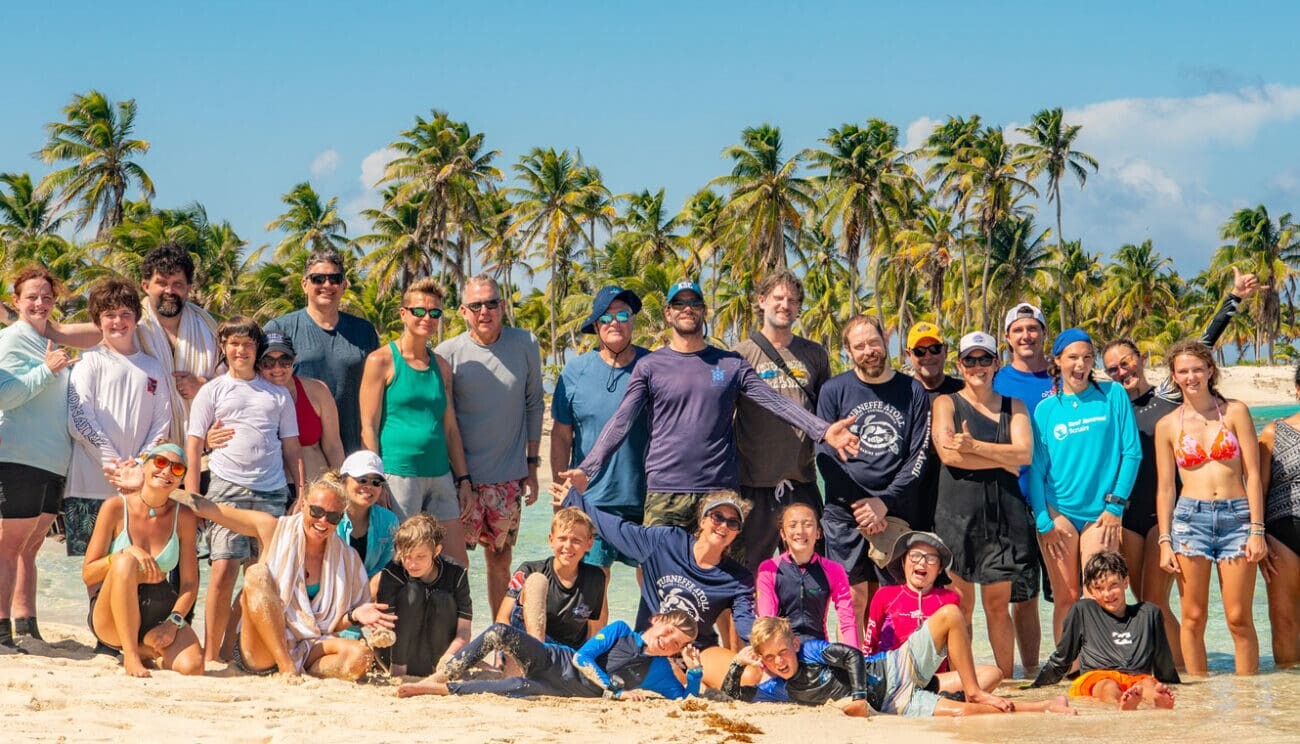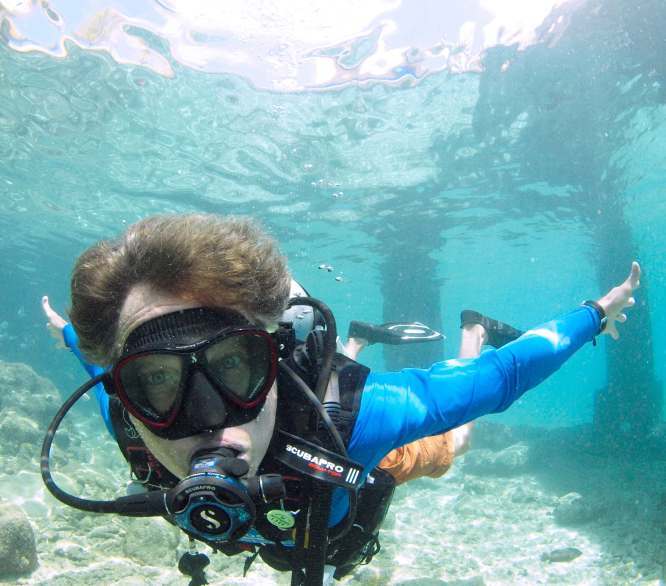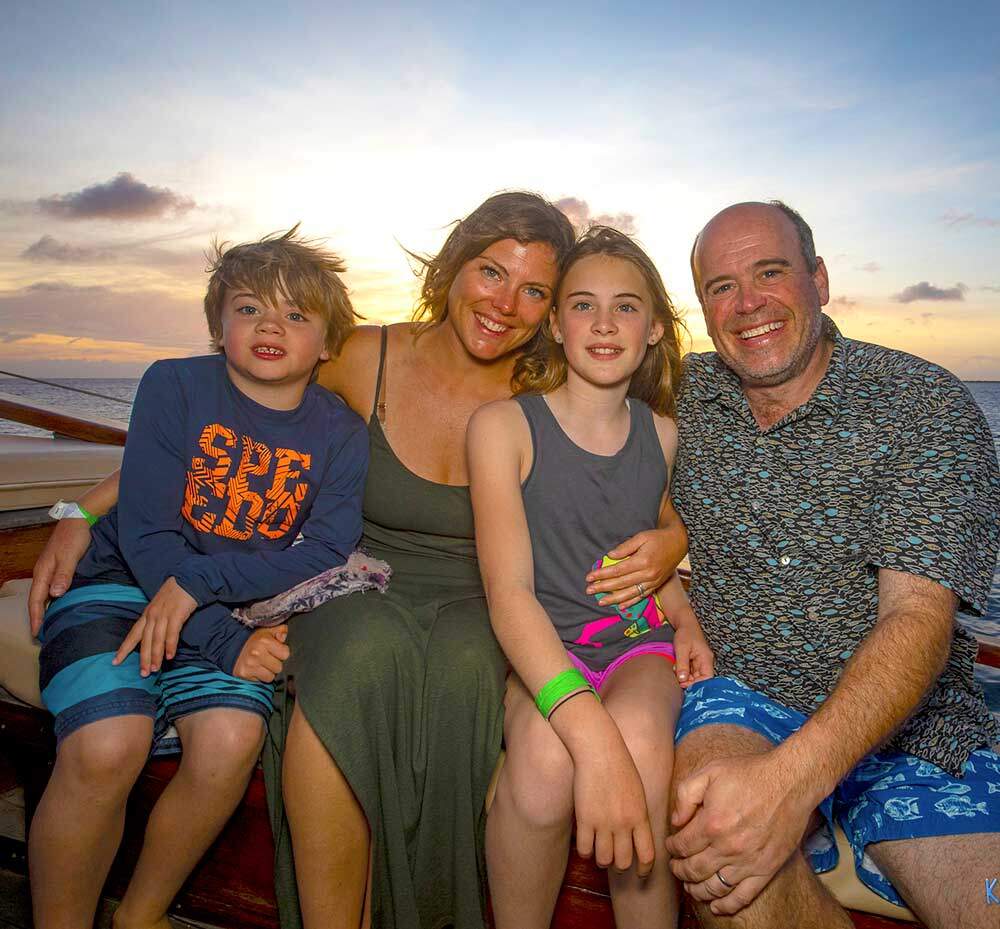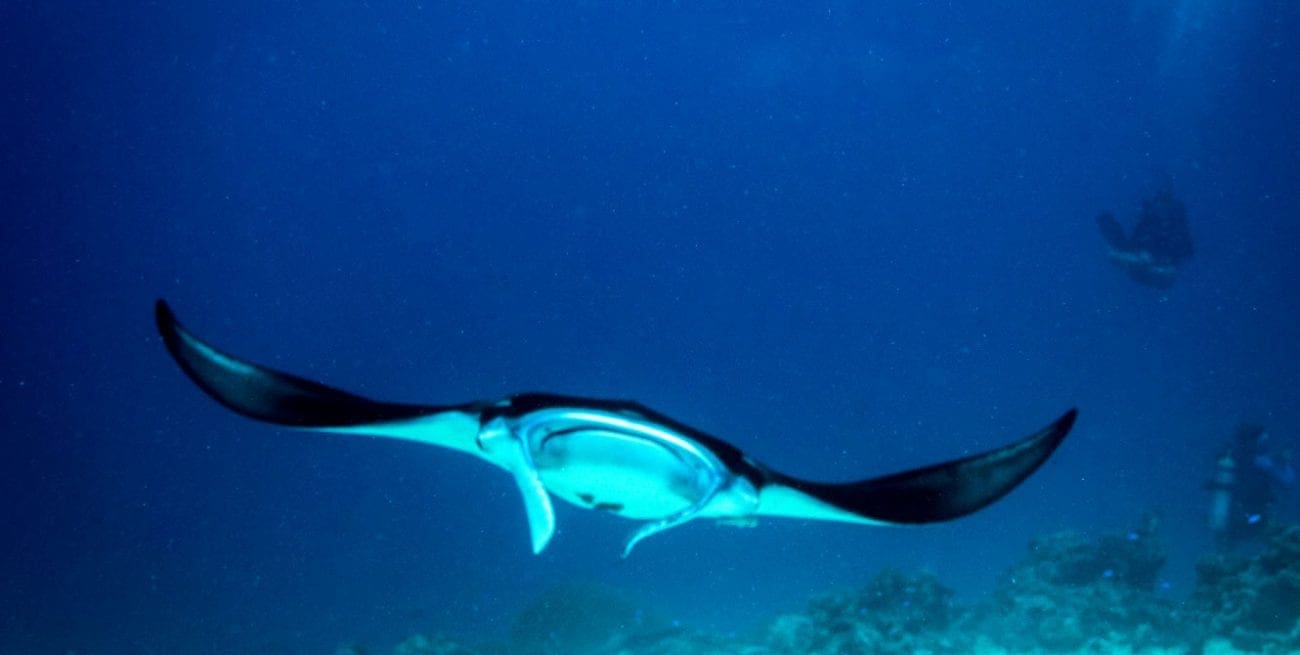A two-week diving vacation is the perfect antidote to a long, stressful year. Margo and I have built a business around facilitating these restorative getaways with Kids Sea Camp, and over the years, we’ve witnessed firsthand the transformative power of time off.
We recently led a four-week Kids Sea Camp trip to the Philippines with ten other families—about sixty people in total. While the trip was filled with the usual Kids Sea Camp highlights—incredible diving, wonderful families, fantastic accommodations, and rich cultural experiences—something else stood out. We observed a noticeable shift in people’s attitudes as they entered the second week of their two-week diving bliss. The pressures of work began to fade, replaced by a deep relaxation brought on by the stunning beauty of the Rock Islands and Yap.
Days were spent connecting with each other during surface intervals and boat rides to incredible dive sites. Out in the middle of the ocean, cell phones and internet access were nonexistent, encouraging everyone to unplug, relax, and truly engage with one another. The diving itself was so captivating that thoughts of texting back home were replaced by the wonder of being forty feet underwater, surrounded by whale sharks. Our vacations naturally foster connection and relaxation, whether you intend it or not.
By the end of the two weeks, our clients were noticeably calmer, more peaceful, and friendlier—dare I say, blissful. This observation inspired me to research the importance of a two-week vacation. It turns out my “personal bliss” had a basis in scientific study. Researchers have discovered what I intuitively knew: two weeks away from work is significantly more beneficial than one.
The American Families and Work Institute has compiled some revealing statistics about vacation time:
- The average employee has 16.6 paid vacation days but only takes 14.6.
- More than 36% of employees don’t plan to use all their vacation time.
- 37% take vacations of less than seven days.
- Only 14% take a two-week vacation.
- Employees report needing an average of three days to truly relax—that’s nearly half the length of a typical seven-day vacation.
- Longer vacations have a greater positive psychological impact than shorter ones.
- Most people feel better about their lives and work after taking time off and are more motivated to achieve their goals.
Other studies reinforce these findings:
- 70% of healthcare costs are stress-related.
- 80% of workers experience stress on the job.
- The human mind performs best in short bursts of intense activity followed by short breaks.
- Our brains naturally shift from alertness to fatigue every 90 minutes.
- Time off allows the mind and body to recover.
As Leaf Van Boven of the University of Colorado notes, “Vacations make us happier than material things because they can’t be compared to anyone else’s experience. They create lasting memories that fire off multiple parts of the brain and, as a result, stick with us. It’s our memories that tell us we like our lives.”
Dr. Mel Borins adds, “Getting away helps to distance yourself from stressful parts of your life. It can help restore your perspective, give you new viewpoints, and allow us to develop new strategies to cope.”
Tom Peyton




